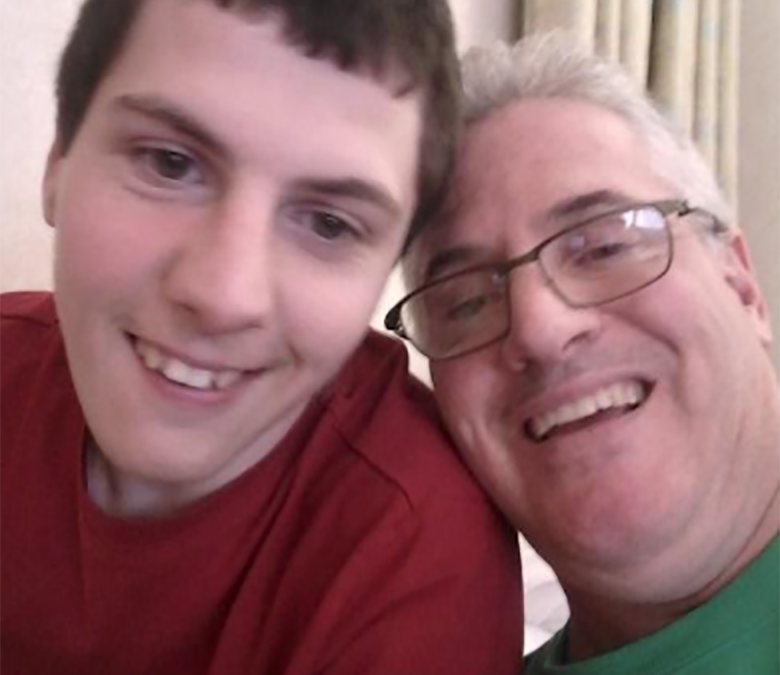
Collins Brown
November 29, 2021
Grant Williams (26) was born with a Traumatic Brain Injury (TBI) and he has since been diagnosed with Autism and Cerebral Palsy. Despite these challenges, Grant’s father, Bob works diligently to ensure that his son can remain and active part of his community. For the Williams family, like many others in this position, this requires help from a home health aide that is trained to support individuals with Grant’s various disabilities. Grant qualifies for state-funded care from home health aides, which has been a lifeline for the whole family. Grant’s father Bob has his own permanent disability, and Grant’s home health aides were especially critical after Bob’s invasive back surgery all but incapacitated him last year.
“Grant is a big guy—he’s about 5’11 and 175 pounds, so I can’t manage him with my own health issues, plus his,” says Bob. “Grant isn’t a geriatric—he is energetic and needs to be able to go outside and engage in his environment daily. But he can’t do it alone—his cognitive and communication skills, plus his balance and coordination, prevent him from being fully independent.” His home health aides have gotten creative in the pandemic. Instead of the library and the aquarium, which were shut down for months, Grant’s aides accompanied him to hikes in the woods, walks on the local trail, and have taken him to the dollar store to find new items to stimulate him, such as coloring books.”
Bob has gone to great lengths to provide Grant with the best care and opportunities available. When his treasured aide, Grace, was having difficulty getting to and from Grant’s parents’ homes from her hometown of Camden due to public transportation issues stemming from COVID, Bob took it upon himself to drive Grace to and from her shifts. Now, Grace, like many of Grant’s former aides, has been reassigned to a new client closer to her home. “It’s a revolving door of aides—and Grant’s ability to continue to learn and habilitate is affected. The workforce is thinning out—and COVID is making it more difficult for people to enter the home healthcare industry because of the dangers of the virus and the unsustainability of low wages in the field.
Grant has had many aides leave for other industries and settings. “Aides who love their work tend to leave the industry to receive a higher education degree, or to find work in other settings like hospitals or nursing homes. At the end of the day, they can’t make fair wages in the home care field,” says Bob.




